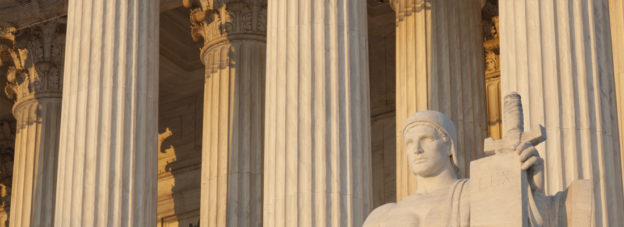In DeLisle v. Crane Co., 2018 Fla. LEXIS 1883, 43 Fla. L. Weekly S 459, the Supreme Court of Florida reaffirmed that the appropriate test for admissibility of an expert opinion about new or novel scientific evidence is the “Frye” test, not the “Daubert” test.
As result of developing mesothelioma, Richard DeLisle sued sixteen defendants, including Crane Company (Crane) and R.J. Reynolds, claiming that each exposed him to asbestos, which is a leading cause of mesothelioma. At trial, Crane and R.J. Reynolds sought to preclude the expert opinions of Mr. DeLisle’s causation experts. The trial denied the motions and the jury awarded Mr. DeLisle $8 million.
Crane and R.J. Reynolds appealed the trial court’s decision to admit the plaintiff’s expert causation testimony. Upon review, the Fourth District Court of Appeal concluded that under Daubert, the trial court erred in admitting the plaintiff’s expert causation testimony. In addition, it remanded the case for a new trial against R.J. Reynolds and the entry of a directed verdict in favor of Crane.
The plaintiff appealed the appellate decision, arguing that in accordance with past precedent, the trial court correctly applied the Frye test rather than the Daubert test.
Daubert v. Frye
In the United States, all states apply a variation of either the “Frye” test or the “Daubert” test to determine the admissibility of expert opinions. Under Frye, expert testimony need only be generally accepted by a meaningful segment of the associated scientific community. Under Daubert, expert testimony is admissible if: (1) the expert’s scientific, technical, or other specialized knowledge will help the trier of fact to understand the evidence or to determine a fact in issue; (2) the testimony is based on sufficient facts or data; (3) the testimony is the product of reliable principles and methods; and (4) the expert has reliably applied the principles and methods to the facts of the case. In 2013, the Florida state legislature codified the requirement that courts apply the Daubert test in Section 90.702 of the Florida Statutes. Prior to this legislation, Florida courts applied the Frye test.
In DeLisle, the court addressed whether the legislature had the authority to legislate the appropriate test for the admissibility of expert testimony. In citing to Article II, Section 3 and Article V, Section 2 of the Florida Constitution, the court held that the state legislature did not have the authority to pass legislation that, “determine[s] matters of [court] practice or procedure” through a mere majority vote.[1] It further held that the test for the admissibility of expert testimony is a procedural rule and, therefore, within the sole purview of the Judiciary. The court concluded by reaffirming “that Frye, not Daubert, is the appropriate test in Florida courts.” The court noted, however, that the Frye test is “inapplicable to the vast majority of cases because it applies only when experts render an option that is based on new or novel scientific techniques.” However, with respect to the medical causation testimony at issue, the court held that the trial court properly admitted the testimony because medical causation testimony is not new or novel, and not subject to a Frye analysis. This case serves as a good reminder that, prior to filing suit, subrogation practitioners should be aware of which test will apply to the admissibility of the testimony of the expert or experts involved in the case.
[1] It should be noted that the Florida Constitution does permit the repeal of a rule of the Court if the legislation is enacted by two-thirds votes of both houses of the legislature.
EDIT: An earlier version of this post contained an incorrect spelling of “DeLisle.” This version has been corrected.


Pingback: Florida Decides Against Adopting Daubert - Advise & Consult, Inc.Advise & Consult, Inc.